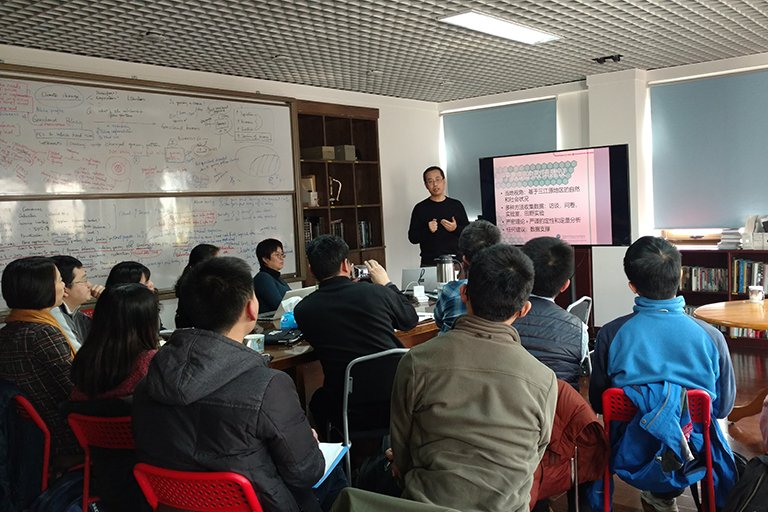Research shows that integrating economic concepts and communication theory may improve long-term conservation behaviors.
A team of researchers from Michigan State University (USA), Peking University (China) and Shan Shui Conservation Center (China) met in early February in Beijing, China to move the findings of a 5-year U.S. National Science Foundation research project into conservation practice.
The team has conducted a series of studies to understand how programs that pay people to conserve or protect resources can influence how people think about conservation behaviors. In particular, the research explores the effects of short-term monetary incentives on social norms and on long-term behavior. It has global implications for programs that use incentives to promote conservation.
This research was framed in the integration of economic concepts and communication theory in order to explain and predict the ways in which monetary incentives influence social norms and behaviors. Their research was conducted with ethnically-Tibetan pastoralists living in an ecologically critical region in Western China.
“This region is the source of the three rivers that provide water to over a billion people in China and South-East Asia, and the home of iconic species such as the snow leopard. Finding ways for people to live in harmony with the environment here is critical,” said John Kerr, Professor in the Department of Community Sustainability.
Through qualitative interviews, a household survey and field experiments with local pastoralists, and working closely with conservation researchers, practitioners and policymakers throughout the course of the project, the team found that payment influences behavior both through the payment for as long as the payment lasts, and beyond the time of the payment through its effects on social norms.
The purpose of the meeting was to discuss draft policy-recommendations with stakeholder groups and to determine the recommendations used for conservation programs as well as policy design and implementation. The report highlights the need for using social and ecological data to design conservation programs and policies, and identifies methods for diffusing conservation policy. It shows that payment programs can have both positive and negative effects on people’s motivations for conservation.
“What people around us think is important influences what we do and this can be changed when someone offers money for doing a behavior,” said Maria Lapinski, Professor in the Department of Communication and a researcher on the team.
The meeting, held on the campus of Peking University, included conservation leaders, academics, and policy-experts.
“The response to the workshop was very positive; the workshop participants were interested in the use of social and environmental science for designing conservation policy," said Jinhua Zhao, Professor in the Department of Economics and Agricultural Food and Resource Economics. “People commented on the clear connection between the research outcomes and policy recommendations.”
The findings will be published in a policy brief available on the Health and Risk Communication Center: Healthy People-Healthy Planet website in the coming weeks and in peer-reviewed publications. The project team also discussed gaps in the existing research and unmet needs to begin to chart future work on these issues. Incentive-based programs are widespread in the U.S. and throughout the world, not just in conservation but also in areas such as public health and education. Improved understanding of the relationship between incentives and social norms can help us design these programs to be more cost-effective.
The team involved in this project included three co-investigators from three different departments at Michigan State University all of whom are appointed in Michigan AgBio Research along with their home departments. Jinhua Zhao, Professor in the Department of Economics and Agricultural Food and Resource Economics, Maria Lapinski, Professor of Communication and John Kerr, Professor in the Department of Community Sustainability. Rain Liu, was a doctoral student collaborator in the Department of Communication at the time of the project and is currently Assistant Professor at Bellarmine University. The team’s collaborator in China included Lu Zhi, Professor of Conservation Biology at Peking University and founder, board member, and Chief Scientist of the Shan Shui Conservation Center and Tsering Bum, currently a doctoral student at Emory University in the Department of Anthropology.
